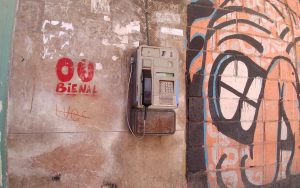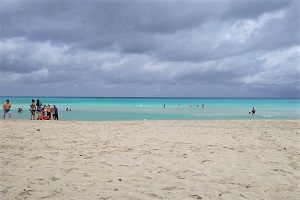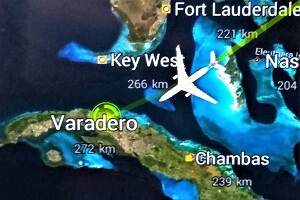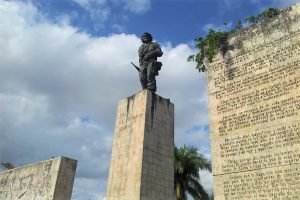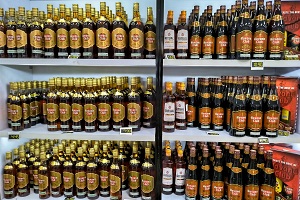Internet & Cell Phones
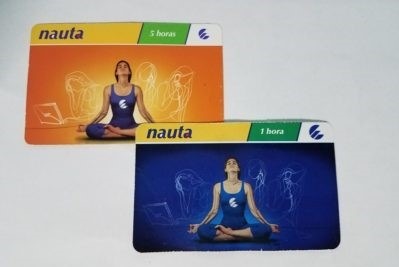
Updated: Dec 19, 2022
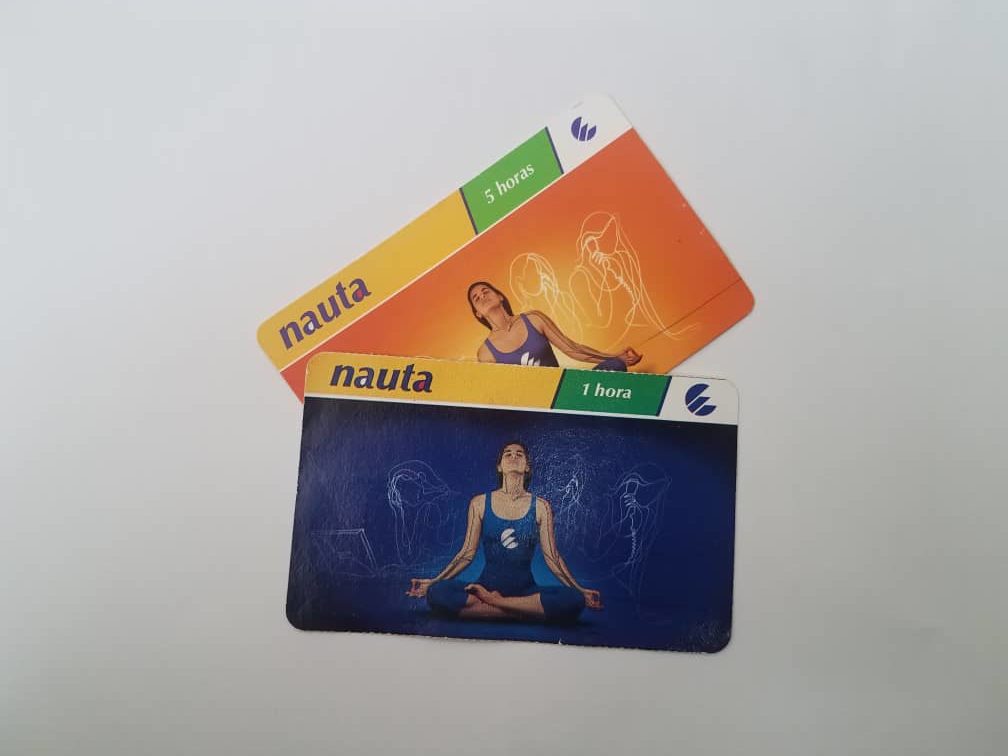
Updated: Dec 19, 2022
The frequent information about the limited internet access in Cuba, may concern potential visitors that want to keep connected. Actually it is not that bad how it sounds. On the island, the Internet can be used in most hotels and in many public places via a wireless WLAN connection. In addition, for some time now it has also been possible to use it through the mobile network. Apart from a few upscale hotels, there is no free internet, therefore it’s almost always subject to a fee. Keep reading this article to discover the different options you have to surf the net in Cuba and what connection costs you may expect.
Until a few years ago, Cuba was one of the last countries in the world that had practically no access to the Internet. Connections could only be established in hotels and at exorbitant fees (4.5 USD / h). The use of the Internet was reserved for a few foreigners and officials, so the general population was basically excluded from its use. Luckily the situation started to change since the political rapprochement with the US towards the end of 2014. It led to important improvements in the area of the Internet. The Cuban government - more precisely the state - owned telecommunications company ETECSA - began successively installing WLAN hotspots in public spaces. Nowadays, there is internet in around 1000 public places nationwide. Another step forward was that the initially exorbitant prices were continuously reduced. An hour of surfing the Internet now costs a USD almost everywhere.
Where do you get online?
To connect to the internet, the first thing you need to know is where it can be used. You can get online in hotels, airports and public places called "Wi-Fi area". Most of them are located in the central squares of towns. Usually you can easily recognize them by the large number of people using the connection with their smartphones. In case you want to know exactly where they are, ETECSA has a list of the locations available online. In most cases, a brief inquiry with the locals is enough to quickly find out, where the nearest Internet access point is.
Besides the public networks, there is wireless internet in most hotels and airports, but not at bus stations. At hotels and airports, the prices can be a bit higher. Some hotels have their own networks that require individual prepaid cards, which usually cost 2 USD, so twice the price as in the public ones. If there is an ETECSA network in a hotel, you will be able to use the usual cards. In Cuba, only a few hotels can now use the Internet free of charge.
Meanwhile, the Internet in restaurants, cafés or bars is basically not available in Cuba yet. Even so, it can be assumed that the offer will gradually improve.
How do you get online?
Using the internet requires a prepaid card that you can easily find at the hotels receptions and the sales counters from the airports. If you are going on a round trip then you would need to get the card from outlets of the state telecommunications company ETECSA or from small, licensed private sales points that you can identify by an ETECSA sign. Most of these sales outlets are not far from the Wi-Fi areas. There you can find cards of 30, 60 or 120 minutes. If you want to surf longer, with a bit of luck you can also get a 5 hours’ card. Regardless of the denomination, an hour always costs 1 USD.
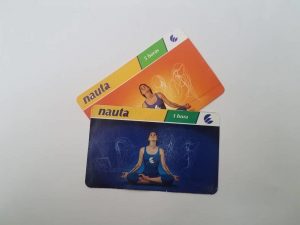
ETECSA Cards
In most Wi-Fi areas, you are frequently approached by young men who sell cards under the table at slightly higher prices. If you want to save yourself the sometimes complicated purchasing of the card, you can use this service without hesitation. Many Cubans also do it. Furthermore, the salespeople are usually happy to help you to connect to the Internet in case you have any problems.
How to establish a connection
What comes next? Once you find a network the question is how to connect. Here we tell you! First, you need to establish a connection to the WLAN network called ETECSA. To use the Internet, you require the code that you get on the prepaid card. When you open the browser, a registration form should appear where you have to enter that code. Actually it sounds easier than how it is often, because the networks are frequently overloaded. Cubans use an application with a user account that makes logging simpler.
In case of connection problems, it can be helpful to delete the ETECSA network and establish a new connection. As mentioned, the often overloaded networks result in connection problems. It happens especially during the day, when many people are using the Internet at the same time. The connection quality is often not sufficient for data-intensive applications such as video calls. Therefore, it is generally better to carry out important activities during off-peak times. When there are fewer people on site - for example early in the morning or late in the evening - the Internet is generally easier to use. So better to go in those times.
If you still can't connect, you have no choice but to try at a different time or place.
As soon as the connection is established, the purchased time begins to pass. If the connection to the WLAN network is disconnected, the time consumption will stop. You can use the minutes remaining on the card in the next session.
Censorship & blockade
The internet in Cuba is censored. However, the restrictions apply to a few sites and portals critical of the government, which are hardly visited by vacationers. All common services (such as Facebook, Google, YouTube, WhatsApp, Skype ...) can be accessed without restriction. In addition, there are some other sites blocked due to US sanctions. Such is the case of US Banks and even large e-commerce sites such as eBay or Amazon.
As another consequence of the embargo, you can expect that online payment systems in many cases cannot be made out of Cuba. These restrictions do not only affect US institutions. When booking online from Cuba, it often happens that the payment process is interrupted. Therefore, online bookings of accommodation, domestic flights or rental cars from Cuba could present problems. According to the described context, it is better to make reservations before arrival. If you are already on the island, a VPN connection can be a solution.
Mobile Networks
During the last years many international providers have made cooperation agreements with the state telecommunications company ETECSA, so that nowadays most cell phones work in Cuba. Before your visit it’s advisable to check with your provider if they offer the option of using the cell phones in Cuba. Calling abroad is quite expensive, but receiving SMS is free and with many providers you can send SMS to your home country at a very affordable price.
The network coverage is good all over Cuba. Beside of a few remote locations, mobile communications are available nationwide. If, for example, a rental car breaks down, you can call for help with your international cell phone in an emergency. You should take into account that the roaming charges are quite high.
Communication via the Internet is significantly cheaper. If you want to chat or make phone calls, you can use the common programs such as Skype, WhatsApp and Facebook. The chat and the telephone function aren’t restricted, which was not always the case. You can also use the public Wi-Fi networks or the internet in the hotels (see above). Moreover, now you can communicate through the mobile Internet (see below).
Making Phone Calls
The roaming prices depend on your own provider. Typically, charges apply to incoming and outgoing calls. Due to the quite high roaming prices, it is not recommended using a foreign cell phone from Cuba - at least not for longer calls.
If you only want to send short notifications, in most cases it’s better to do it by text messages. Sending SMS is usually cheap, obviously depending on your provider.
Mobile Internet with your own SIM card
Mobile Internet can be used in most regions of Cuba. In urban areas you have at least 3G speed, so the connection is sufficient for e-mails, chats and also (video) calls. Im urabn areas you can expect at least 3G speed, so that the connection is sufficient for emails, chats and also (video) calls. In 2021 many 4G networks have been established in many Cuban cities.
While prepaid cards are usually sinfully expensive, contract customers have often the option of booking an Internet package. Depending on your provider, the prices are very different.
For travelers who want to book a package with smaller data volumes, it is recommended to use an application that prevents the data consumption of unused programs (firewall).
Those who do not want to do without a larger data volume have the possibility to rent a prepaid SIM card in Cuba or to purchase one with a little trick - see the next section.
Heavy user? Rent or purchase a Cuban SIM card
Foreign visitors are officially not eligible to purchase a Cuban SIM card. The official alternative is to rent a chip from ETECSA. The costs for this service is around 3 USD per day. In addition, at least once 10 USD of credit must be charged.
If you stay longer in the country, you can try to get a SIM through a Cuban citizen. The card costs once 40 USD, while a credit of 10 USD (250 CUP) is included.
With both card types, you are able to book different internet packages.
In the 3G offer you can choose among:
- 600 MB for 175 CUP (7 USD)
- 1 GB for 250 CUP (10 USD)
- 2.5 GB for 500 MN (20 USD)
- 4 GB for 750 CUP (30 USD)
After 30 days, the data packages will expire and the unused amounts will expire. But don't worry if you need more data, you can just book additional packages.
When leaving the country, you can leave the card to the helpful Cuban. If a personal handover is not possible, the Cuban can get a replacement card from ETECSA for 3 USD.
ETECSA developed a service for visitors, called Cubacel Tur, that allow travelers to purchase a temporary SIM card for 25 USD. The package includes 2.5 GB data volume, 20 free call minutes plus 20 SMS. With that card you can also book the internet packages, that are listed above. The SIM expires after a period of 30 days, counting from its activation. The acquisition needs to be online through the pages of ETECSA´s international vendors (www.cubaceltur.com / www.recargasacuba.com).
